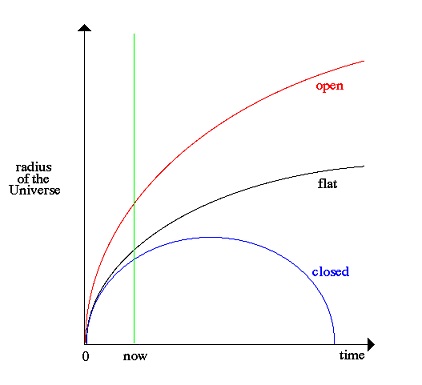We cannot see it occurrence on Earth, but space itself is stretching. Ever since Big Bang has occurred 13.8 billion years ago, universe has been getting bigger. "If you go in the distant future, everything which we see in universe right now will expand away from us so much which we will not be able to see it anymore.
The universe grows every year, and by the gradually larger amount. At present, scientists have calculated for the first time how fast universe was growing 10.8 billion years ago with extraordinary accuracy. Data come from that time period as scientists were looking at very remote celestial objects, whose light has been travelling for that long.
"What is inspiring, is that we calculate expansion with improved accuracy (than expansion today), although we are looking additional in time," said Andreu Font-Ribera of Lawrence Berkeley National Laboratory, lead author of new study, in the e-mail.
Studying quasars
Font-Ribera and colleagues used Baryon Oscillation Spectroscopic Survey, part of Sloan Digital Sky Survey, to look at quasars. Quasars are very intense galaxy cores, powered by super massive black holes, producing massive amounts of energy.
Hydrogen gas in space partially absorbs light from far-away quasars; when this occurs, the gas gets embossed with the ring-like pattern from the occurrence known baryon acoustic oscillations. This is marker of how matter is distributed. Patches in gas which are denser attract more light.
From principles of physics, scientists can find out how big these marks must be and contrast that with their maps including data observed with BOSS. Two groups of scientists have examined data from more than 100,000 quasars, looking for hints of how matter is distributed. One research was led by Timothee Delubac of Centre de Saclay in France (PDF), other by Font-Ribera. Together, their findings set up the expansion rate of universe.
What's driving accelerated expansion of universe is strange entity which exists only in theory: dark energy. We believe that dark energy is force which pushes matter apart and it makes up about 71% of universe.
What is the universe made of?
"The objective is to know something more about dark energy and what it is doing to universe," Schlegel said.
A short history of expansion:
Less than the trillionth of second after Big Bang, scientists think, universe stretched faster than speed of light in the occurrence known as inflation. This theory was just supported by the landmark study.
But then, as the force of gravity, universe's growth slowdown and was in the slowing-down period 10.8 billion years ago. For that time, growth rate scientists have calculated by using quasars is 68 kilometres (42 miles) per second per million light-years. Then, about 7 billion years ago, growth rate of a universe increased again. Scientists feature this mysterious return to dark energy.
We are at present on the upswing. Growth rate is rising again, and right now it is comparable to what was calculated 10.8 billion years ago. In comparative terms, though, universe is not growing as much today with respect to its size, Font-Ribera said. That is because universe is so much bigger today than it was 10.8 billion years ago.
When universe was few billion years old, it was getting bigger in every aspect by 1% for every 44 million years which passed, Schlegel said. "Today, it takes 140 million years to get bigger by 1%," he said.
Our galaxy's future
Universe's growth does not have big influence on space between planets in our solar system as gravity is a leading force holding everything together. But someday, all of galaxies which we can at present see with telescopes will all have floated beyond horizon of view, Schlegel said.

The equations of expanding universe have three probable solutions, each of which forecasts a diverse ultimate fate for universe as whole. The three possible kinds of expanding universes are known as open, flat, and closed universes. If universe were open, it would enlarge everlastingly. If universe were flat, it would also enlarge everlastingly, but expansion rate would slow to zero after the endless amount of time. If universe were closed, it would finally stop expanding and recollapse on itself, maybe leading to another big bang. In all three cases, expansion slows, and force which causes slowing is gravity.
Do not worry; that will not occur for the long, long time. By the way, 6 billion years from now, our galaxy will have entirely merged with Andromeda, so eventually that united galaxy will exist out of sight of any other galaxy as space-time grows.